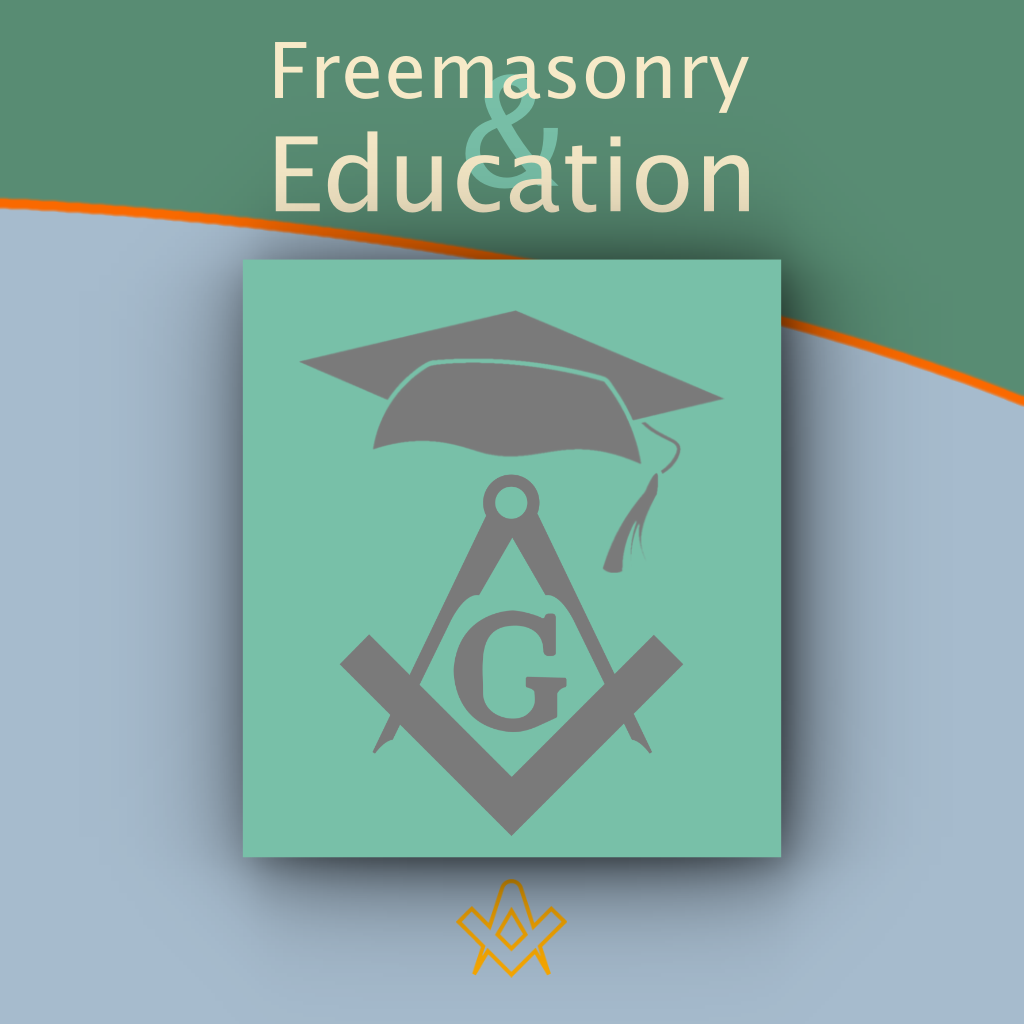Alberta Freemasonry and Education
The fondest moments of Alberta Freemasonry that I have experienced are interviewing and presenting Masonic Higher Education Bursaries to young men and women of Alberta.
These men and women are a delight to be with. They are excited about their education, their careers, and hopes for the future.
Each one—whether it be a timid young lady who wishes to study sociology, psychology, and theology, or a down-to-earth young farmer who is taking engineering technology, or an extroverted farm girl who is planning a career in veterinary medicine—has a plan for the future and, given the chance, will talk excitedly about that plan.
Such young people are Alberta’s next generation, Alberta’s greatest resource. While none of us knows what their future holds, they are preparing themselves to move forward in this ever-changing world with the tools that they think will best help them to be a success.
Regius Poem 1390
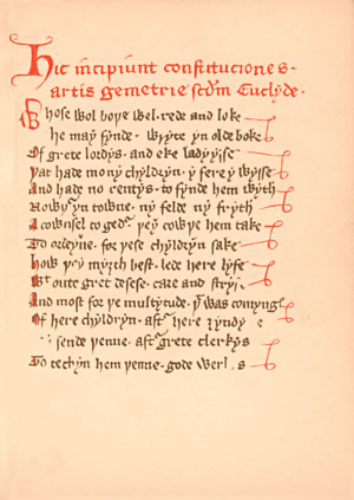
Freemasonry and education have gone hand-in-hand since Freemasonry’s beginning. The earliest document regarding Masonry is the Regius Poem of 1390. The Regius Poem describes the roles of parents, children, the master mason, and the apprentice, all within the sphere of Craft Masonry.
The Thirteenth Article:
The thirteenth article, so God save me,
Is: if a master has an apprentice,
Then he should teach him completely
And explain to him measurable points,
So that he may know the craft ably,
Wheresoever he goes under the sun.
While the last two lines of Plate XLV, Plate XLVI and the first half of Plate XLVII contain the seven sciences, that according to the Poem, Euclid taught:
Through the high grace of Christ in heaven,
He commenced with the seven sciences:Grammar is the first science, certainly,
Dialectic, the second, so I have the pleasure,
Rhetoric, the third, without denial,
Music is the fourth, as I say you,
Astronomy is the fifth, by my snout,
Arithmetic is the sixth, without a doubt,
Geometry the seventh makes an end,
For it is both meek and courteous.
Grammar truly is the root
For whoever will learn in the book;
But art passes it in degree
Even as the fruit does the root of the tree;
Rhetoric measures with adorned speech at intervals,And music, it is a sweet song;
Astronomy enumerates, my dear brother,
Arithmetic shows one thing that is another,
Geometry is the seventh science,
That can divide surely falsehood from truth.
These are the seven sciences,
Whosoever uses them well, he may be in heaven.
So, we have the Regius Poem of 1390 indicating that the master mason should teach each apprentice completely so that he is competent wherever he goes and, by implication, that his education be well rounded with the seven sciences.
Elias Ashmole 1646
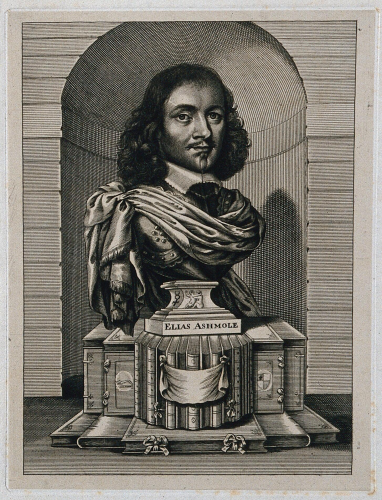
Elias Ashmole. Line engraving, 1747, after W. Faithorne.
IMAGE LINKED: wellcome collection Attribution 4.0 International (CC BY 4.0)
Elias Ashmole became a Freemason on 16 October 1646, at Warrington in Lancashire. This is the earliest record of a non-mason becoming a Freemason in England.
So, the apprenticeship system of 1390 that trained men to have successful careers as stone masons was changing to an organization that trained men to have successful careers in an ever-changing world.
That training included to be able to speak clearly and succinctly in public with confidence, as well as developing social skills and graces that were acceptable in civil society.
Ashmole was also a founding member of the Royal Society. The Royal Society endeavoured to pursue truth, by the “scientific method” of investigation into the seven liberal arts and sciences.
The Moderns 1717
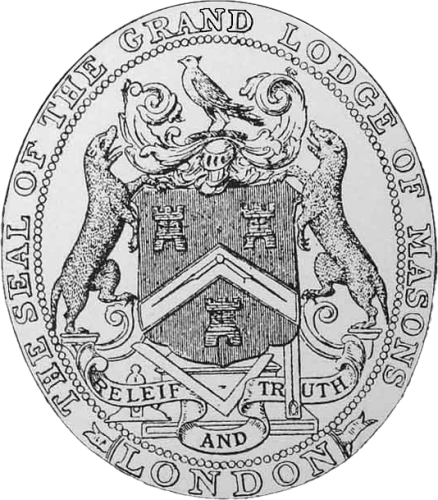
Well known in Masonic circles is the story of the formation of the Moderns from the following four Lodges:
From the Goose and Gridiron Ale House in St Paul’s Church Yard,
From the Crown Ale House in Parker’s Lane near Drury Lane,
From the Apple Tree Tavern in Charles Street, Covent Garden,
From the Rummer and Grapes Tavern in Channel Row, Westminster.
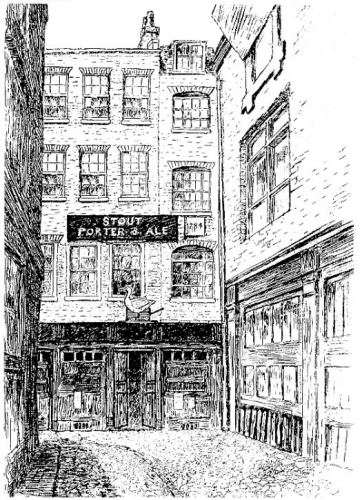
The Goose and Gridiron Ale House.
IMAGE LINKED: wikimedia Attribution 4.0 International (CC BY 4.0)
They met at the said Goose and Gridiron for the assembly and feast of the Free and Accepted Masons on 24 June 1717, St. John the Baptist day, with Mr. Antony Sayer being in the chair.
At this time, the MM Degree does not seem to appear in the minutes of any Lodge meeting.
However, on 27 April 1727, at the Swan and Rummer, a Lodge of Masters was held. By 1730, it seems that a number of Lodges were using a three-degree system.
However, as we know, the educational aspects of the Fellowcraft degree, were still well maintained.
The Antients 1751
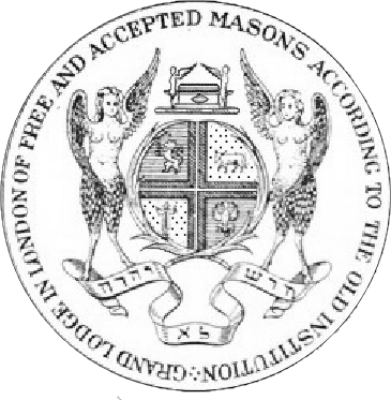
Apathy and neglect of the Premier Grand Lodge and the printing of Masonic exposés resulted in the irregular making of Masons.
In addition, decrees, banning of processions, minimum fees, prohibition of making and passing a candidate on one occasion, and other such actions by the Premier Grand Lodge tended to annoy the rank-and-file Freemason.
These actions resulted in the formation of the Most Ancient and Honble Society of Free and Accepted Masons.
The Antients were heavily influenced by Irish and Scottish Freemasons as well as the actors associated with Drury Lane. But again, the educational aspects of Freemasonry were retained.
Unification 1813
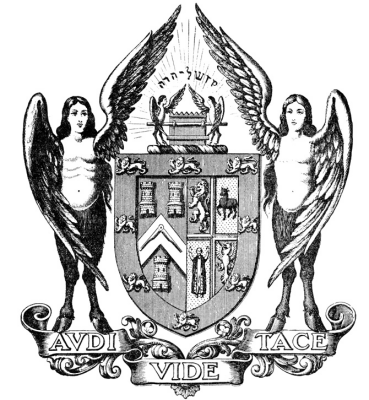
Arms of the United Grand Lodge of England.
With the Unification of the Moderns and the Antients in 1813 and the creation of the Emulation Lodge of Improvement for Master Masons and the Lodge of Reconciliation, there tended to be more uniformity in Masonic rituals in England.
American Ritual
Rituals of North America, USA and Canada, descend from the Moderns, the Antients, as well as Irish and Scottish rituals, with “Canadian” rituals being similar to Emulation.
The major differences between the American Working and the typical ritual of the UK whether it be Emulation, Universal, Craft Guide or Standard Scottish is that American rituals tend to be more verbose.
As well, some open in the MM Degree, most tend to be more Christian (not having gone through the Unification process), and the American MM Degree tends to be more theatrical in nature.
However, the pursuit of truth and the study of the seven liberal arts and sciences are revealed in all.
The Importance of Education
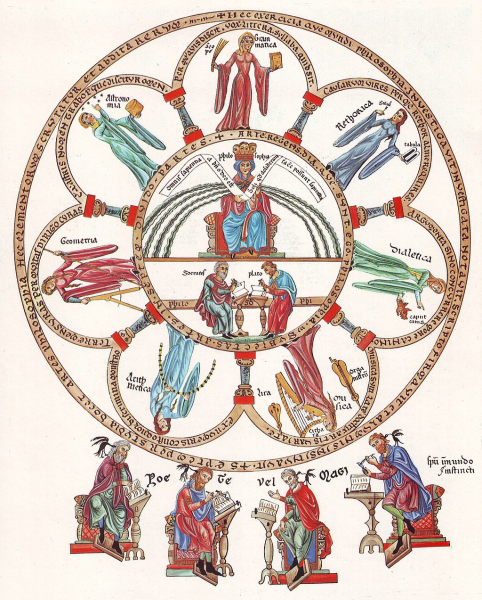
The Seven Liberal Arts and Sciences, 12th century illumination, Herrad of Landsberg – Hortus deliciarum.
IMAGE LINKED: wikimedia Attribution 4.0 International (CC BY 4.0)
Freedom and the education of the individual are themes that are continuous in Freemasonry from the very earliest writing to the present day.
In the United Kingdom, it took until 1918 for men to obtain the vote and until 1928 for women to get the vote. The responsibilities associated with being free are great and significant and are clearly detailed in the biblical Book of Exodus.
The difficulties with these responsibilities are burdensome but they become easier to deal with as one becomes educated in the arts and humanities, and in mathematics and sciences.
We educate ourselves in arts and humanities so that we can better communicate with each other. We educate ourselves in mathematics and sciences for the service and convenience of mankind.
None of us knows what tomorrow will bring, and we only need to review the many changes in the world and the knowledge that we have gained since 1945 to see the truth of that.
Educating ourselves as well as we can prepares us for the unknown world of tomorrow.
The sole purpose of the Alberta Masonic Higher Education Bursary Fund is to help the next generation of Albertans, our children and grandchildren, to obtain the education they need to lead successful lives and contribute to the welfare of mankind.
As you can see from this little lesson of our history, education is truly a Masonic obligation.
References:
The Regius Manuscript, Frederick M. Hunter, Grand Lodge of A. F. & A. M. of Oregon, 1952
Freemasons’ Guide and Compendium, Bernard E. Jones, George G. Harper & Co. Ltd., 1975
Article by: Chris E. Batty
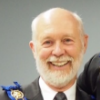
Chris E. Batty was born in the spring of 1945 in Tunbridge Wells, Kent, UK.
He immigrated to Canada early in 1965 with just $45 in his pocket and very little education.
Chris’s interest in Freemasonry stems from his father, who was a member of Bostall Heath Lodge No. 4492, English Constitution.
He has been a Freemason since 1975, served as Worshipful Master of Saskatchewan Lodge No. 92 GRA for the Masonic Year 1982; appointed the Grand Pursivant for the Masonic Year 2001 – 2002; elected as the District Deputy Grand Master for the Northern Lights District for the year 2005 – 2006.
Elected to the Masonic Higher Education Bursary Committee in 2006 and served as the Chairman from 2007 to 2014.
Elected Junior Grand Warden in 2012, and served as SGW, DGM, and the Grand Master for the year 2015 – 2016.
He was appointed as an Honorary Past Grand Master of the Grand Lodge of Saskatchewan in 2015.
And subsequently, an Honorary Grand Master of the Grand Lodge of Manitoba in 2017.
Recent Articles: by Chris Batty
 The Alberta Masonic Higher Education Bursary Fund is to help the next generation of Albertans, our children and grandchildren, to obtain the education they need to lead successful lives and contribute to the welfare of mankind. As you can see from this little lesson of our history, education is truly a Masonic obligation. |
 What is leadership and who does freemasonry help develop those skills needed to be a better leader |
 Value Proposition of Freemasonry In addressing declining lodge membership and lack of attendance, we need to assess the value it offers to members. What is value, and what does it mean to you? |
 The Cable Tow: Its Origins, Symbolism, & Significance for Freemasons - Unbinding the significance of the cable tow. |
Recent Articles: membership
 A Rose by any other Name may not be the same Explore the profound distinctions between conferred and transmitted Masonic degrees with Bro. Scott Wisdahl. Delve into how presentation quality, personal impact, and setting shape these rituals, and consider the potential for digital adaptations in modern Masonic practices. Join the discussion on enhancing the Masonic journey and preserving its essence. |
 Progression through the Degrees; a Rite or a Privilege? Exploring the layered journey of Freemasonry, Matt DA Fletcher probes the essence of progression—whether it's a mere rite or a privileged path. Delve into a nuanced perspective where every degree is not just a milestone but a fraction of a grander continuum. |
 Quantity vs Quality within the world of Freemasonry Dive into the compelling debate of quantity vs quality within the world of Freemasonry. Discover the transformative focus on attracting members aligned with the institution's values, promising not only growth but quality growth. High-value individuals assure sustainable development with their commitment to serving the brotherhood. |
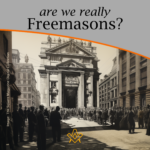 Maybe Freemasonry has opened its doors too wide. Perhaps some have not understood that the survival of Freemasonry in order to achieve its sublime purpose lies not in the number of members it has, but in their quality. Maybe we need less members and more Freemasons. Less men in Freemasonry and more Freemasonry in men. |
 What is ritual and why is it important? P1 Delve into the profound world of Freemasonry rituals and their significance. This insightful piece unravels the underlying importance of rituals, their impact on participants, and the transformative power they hold. Uncover why these centuries-old traditions remain integral to Masonic practice today. |
 Could Freemasonry be helpful for young men? Unravel the Masonic Brotherhood: Could Freemasonry be the antidote to modernity's challenges for young men? Dive in as we explore the Masonic world, its principles, camaraderie, and how its traditional rituals could help forge stronger identities in an increasingly complex world. |
 Discover the remarkable benefits of Lodge Meetings on your well-being. From fostering connections to combating stress, learn how these male-oriented gatherings offer an antidote to anger, hunger, isolation, and exhaustion. Dive into the power of shared experiences, understanding, and camaraderie. Your key to improved mental health awaits inside. |
 Tutorial for a Worshipful Master Unlock the Secrets to Leadership Mastery in our Worshipful Master's Tutorial! Brother Antonio Biella shares step-by-step guidance for Masonic Lodge leaders on honing their roles, duties, and future vision. Discover how to drive growth and engagement in your Lodge, setting ambitious goals and inspiring member participation. |
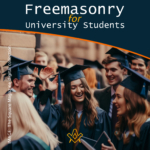 Freemasonry for University Students What are social skillset challenges facing students when they graduate from university ? |
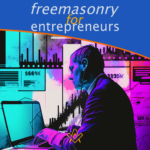 How the Core Values of Freemasonry; Brotherly Love, Relief and Truth Can Be Applied to Improve Productivity For Entrepreneurs |
 Why I became a Freemason: a personal journey of self-improvement Salik Tariq shares his reasons for becoming a Freemason – a journey of self-improvement, finding a community, and personal growth. |
 Freemasonry: Coming out of the Cloisters This paper examines the fundamental tensions on the lines of religion, gender and political ideology that exist in some jurisdictions of Freemasonry. It is on the first of these, religion, on which he makes an initial and exploratory focus. - by Gerald Reilly |
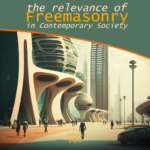 The Relevance of Freemasonry in Contemporary Society The role of Freemasonry in contemporary society is an indispensable one. Despite the challenges and misconceptions it faces, the organization remains steadfast in its humanitarian pursuits and commitment to personal growth and self-betterment. Through its efforts to evolve and adapt to the changing needs of its members and the world, Freemasonry continues to be a vital force in shaping a better future for all. |
 Has Freemasonry managed to revive and thrive after the darkness of the Pandemic? Robert Lomas gives us some (promising) insights. |
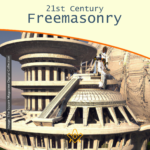 21st Century Freemasonry – a Sign of the Times? A recent article in The Times of London highlighted the dilemma 21st Freemasonry is facing. In this article one Master Mason shares his views of the strengths, and the challenges of modern Masonry. |
 A concept that is both based on our Freemasonic rituals and what we understand as teamwork. This article by Chris Batty examines why teamwork in the lodge is the network that binds us. |
 Lebanese Freemasonry has been both witness to and sometimes participants in turbulent events and forces, which shaped and influenced their world. |
 Is a Masonic Tradition Necessary? Dealing with Masonic tradition is a complex subject that requires careful analysis in order to reach a balanced point on the best etymological definition and the set of discourses and practices, which often end up being presented as such, without, however, presenting bases that support them, often serving only as a discourse that restricts and controls the masses. Fernando Rodrigues de Souza debates this complex subject. |
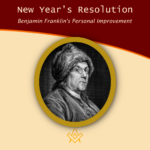 New Year's Resolution with Benjamin Franklin's Personal Improvement Are you ready for a new year's resolution challenge ? To accomplish his life’s goals, at 25 ( around 290 years ago ), Benjamin Franklin developed and committed himself to a personal improvement program that consisted of 13 virtues. You are invited to join me in practicing his daily routine for 2023. |
 The Alberta Masonic Higher Education Bursary Fund is to help the next generation of Albertans, our children and grandchildren, to obtain the education they need to lead successful lives and contribute to the welfare of mankind. As you can see from this little lesson of our history, education is truly a Masonic obligation. |
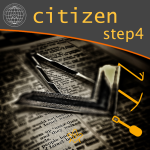 To be a Better Citizen of the World: Step 4 A value proposition for Pure Ancient Masonry as defined in terms of Citizenship; the allegories, symbolism and lessons are a blueprint for all Freemasons to be a better citizen of the world. |
 To be a Better Citizen of the World; Step 3 A value proposition for Pure Ancient Masonry as defined in terms of Citizenship; the allegories, symbolism and lessons are a blueprint for all Freemasons to be a better citizen of the world. |
 In connection with recent article about Freemasonry in the metaverse, we look at how an Egregore applies to Freemasonry in a digital world |
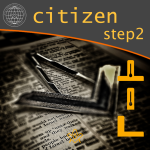 To be a Better Citizen of the World; Step 2 A value proposition for Pure Ancient Masonry as defined in terms of Citizenship; the allegories, symbolism and lessons are a blueprint for all Freemasons to be a better citizen of the world. |
 There are many brotherhoods in the world, and Freemasonry is one of the most significant and successful of them all. This article will be the focus two questions: the importance of brotherhood ? and is there room for improvement in Freemasonry? |
 Intergenerational relations in Masonry: challenges and possibilities Backed with scientific research, Professor Luiz Neto and Professor Alexandre Braune investigate the Intergenerational relations in Freemasonry and explores the challenges and opportunities. |
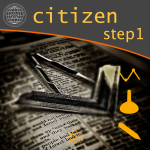 To be a Better Citizen of the World; Step 1 A value proposition for Pure Ancient Masonry as defined in terms of Citizenship; the allegories, symbolism and lessons are a blueprint for all Freemasons to be a better citizen of the world. |
 The Masonic Temple is a platform where both Freemasons and non-Masons, enthusiasts of real art and spiritual growth, connect to the new world of the metaverse. A Freemasonry in the metaverse project, based regular freemasonry principles. |
 Opportunity to fix the Sussex fudge Is there a value proposition for members, that under English Constitution Freemasonry, we have a 4 part offering; Entered Apprentice, Fellowcraft , Master Mason and Companion, conducted in a single craft lodge ? |
 Value Proposition of Freemasonry In addressing declining lodge membership and lack of attendance, we need to assess the value it offers to members. What is value, and what does it mean to you? |
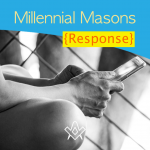 What is a 'Millennial' and what do they want from Freemasonry? You'll be surprised at the answers. |
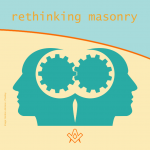 Let us help answer a fundamental question, from a confused newly raised brother asking “What does it all mean and where do I go from here?” |
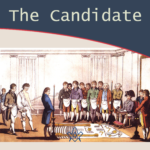 Written in 1930, much of the advice is still relevant today - although some may provoke further thought or debate! |
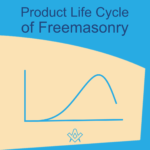 Product Life Cycle of Freemasonry An inconvenient truth about the product life cycle of Freemasonry |
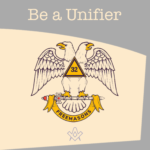 Freemasonry is local. This is where we need to start. We start with our Facebook friends, our neighbours, our colleagues, our lodges… |
 Freemasonry in the time of pandemic The Rule of Six. Localised lockdowns. Second wave? What do we do now?! The answer is simple - engage with members, promote Masonic education and get thinking outside the lodge. |
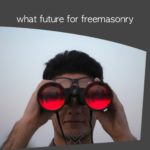 The current functioning of the Masonic movement has some positive aspects and others that are blatantly backward and counterproductive. |
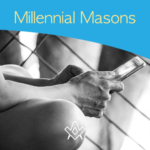 What is a 'Millennial' and what do they want from Freemasonry? You'll be surprised at the answers. |
 How to improve your Lodge Membership Marketing Program. |
 The Anti-Social Impact of Social Media The 'dark side' of social media and its negative effect on our mental health |
 If Freemasonry cannot meet, is this an opportunity to make a change to how we do things? |
 Has your lodge accepted an unknown candidate from the internet? Third in a three-part series looking at the process to accepting candidates via the internet |
 Is the brother of a brother a brother ? Rights to visit - recognition and regularity re-evaluated. |
 The second article in the Unknown Candidate series - Outlining the social media marketing process to attract the unknown candidate to make that first enquiry |
 Ask a random Freemason the purpose of Freemasonry and the likely response will be to “make good men, better”. Research undertaken by James Justin Davis Pennsylvania Academy of Masonic Knowledge. |
 Has your lodge accepted an unknown candidate from the internet? First in a three-part series looking at the process to accepting candidates via the internet |
 Mental Health - Raising its awareness and how we as Freemasons throughout the entire UK can help our fellow brethren and their families when they need it. |
 Share one thought why freemasonry is relevant today - Open question posted on Facebook with a very wide range of responses from Brethren across the globe |
 The Tipping Point of Freemasonry Why do brothers lose interest in Freemasonry and what can we do to get that spark back? At what moment did our own thoughts begin to waver? |
masonic knowledge
to be a better citizen of the world
share the square with two brothers

click image to open email app on mobile device



